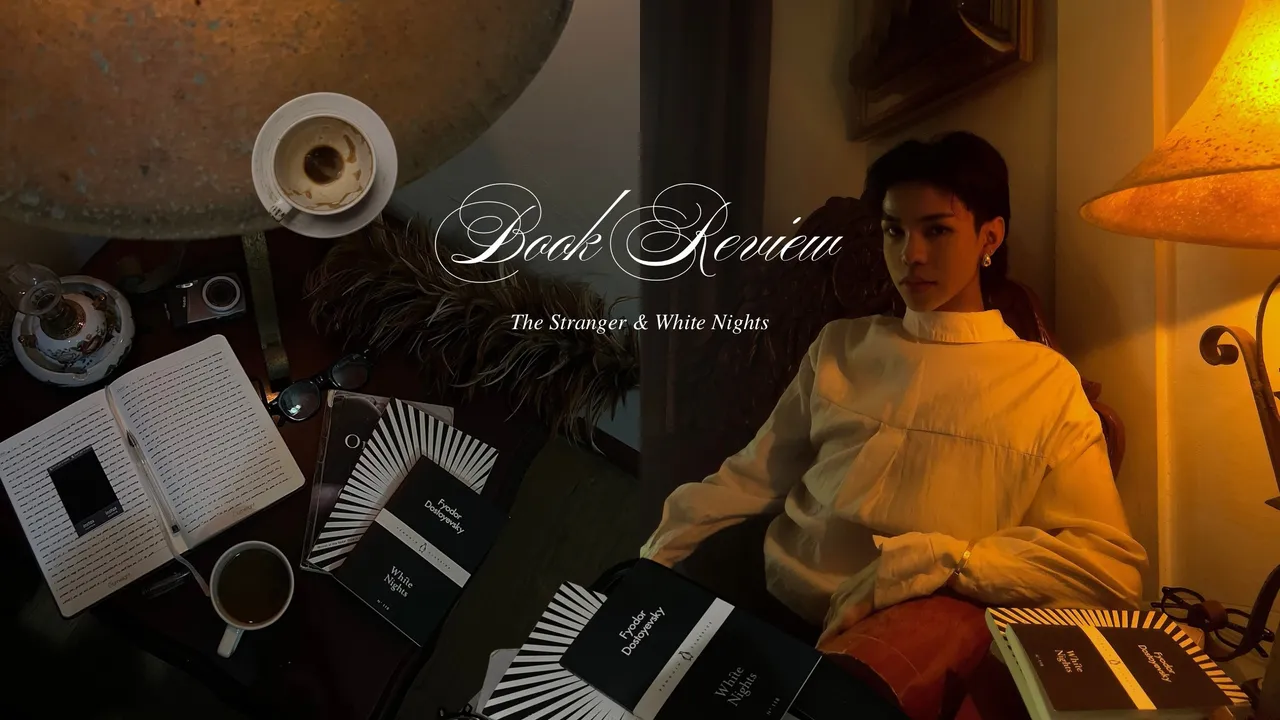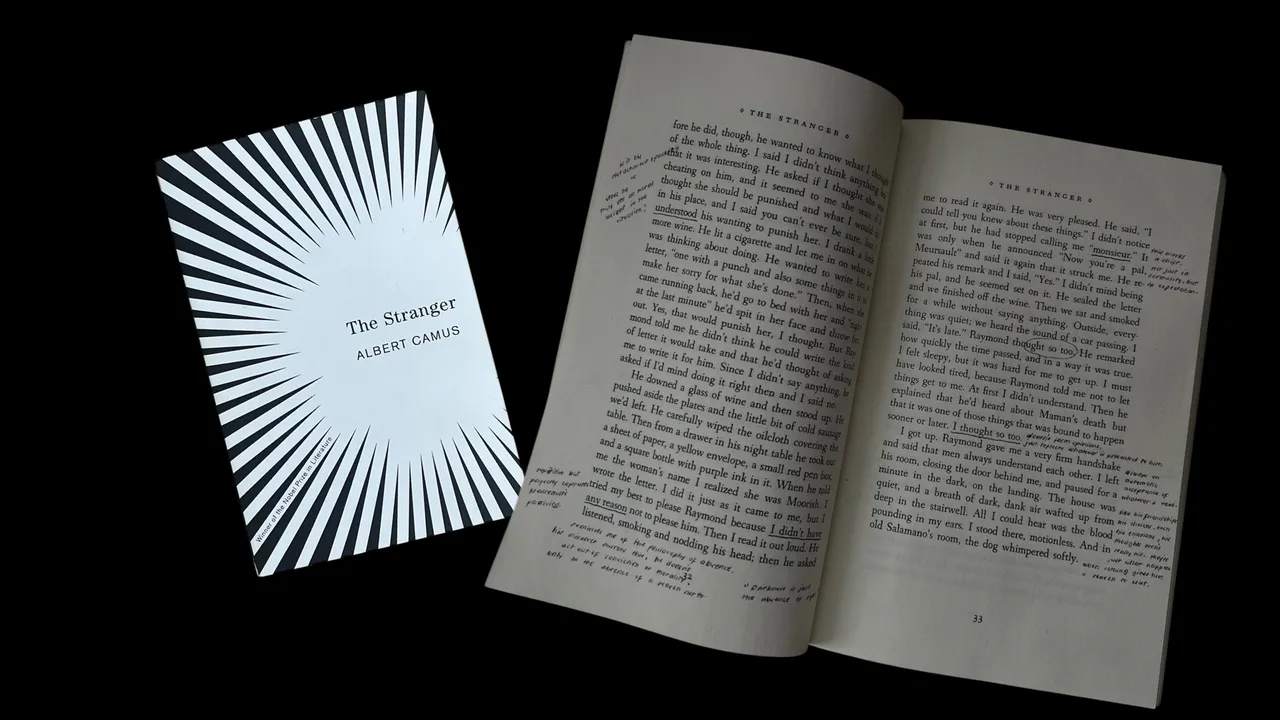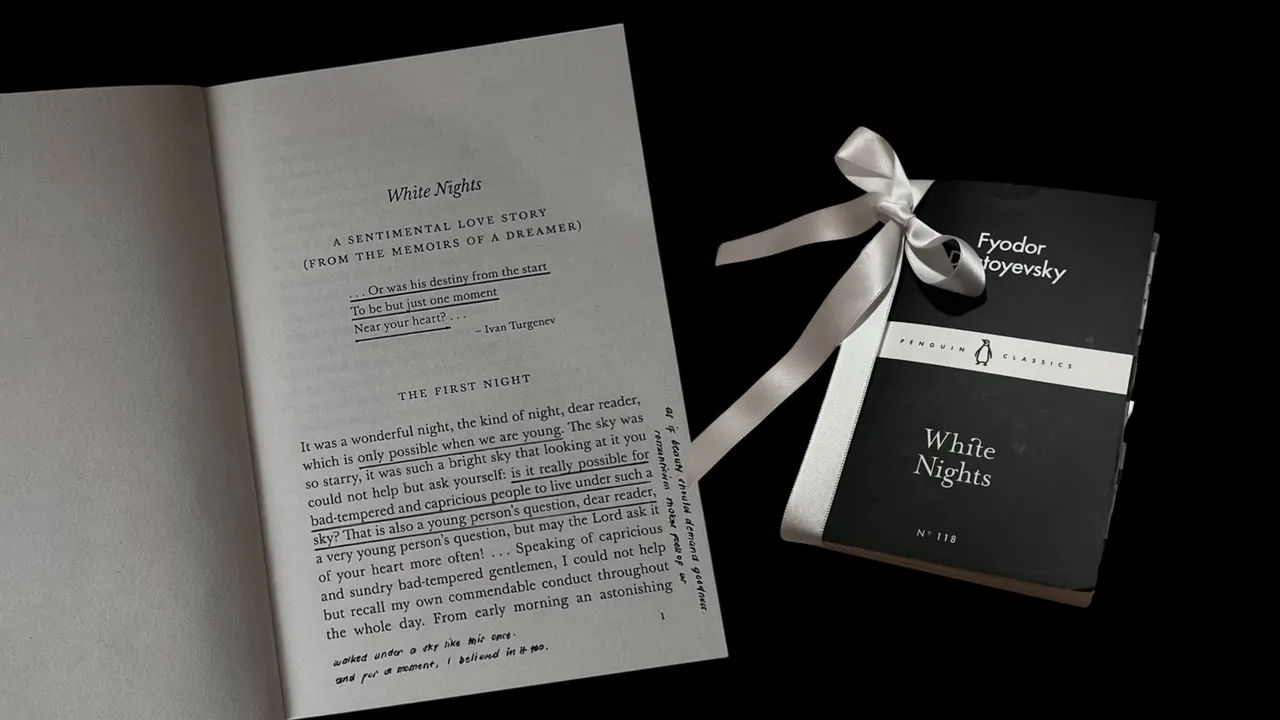
Danver here, back with another blog—this time from my element, discussing something that really titillates my heart. Reading has always been my hobby, yet as a philosophy major, it has taken a turn for more than just pastime. Books are not just stories; they are conversations with the past that have brilliant minds that shaped our understanding of existence, morality, and even love. Today I am reviewing two books that quite challenged my mind: The Stranger by Albert Camus and White Nights by Fyodor Dostoevsky.

A few weeks ago, a classmate and I were talking about books when The Stranger by Albert Camus came up. She casually mentioned that she had one, and without further ado, I asked if I could borrow it. She handed me the book the next day, and I pounced on it.
First on a list of things that shocked me was that all the relations in the book seem to exist within some sort of abuse: either it is physical, emotional, or even existential. Take that of Salamano and his dog, for example. They are inseparable, and their bonds of union are predicated upon mistreatment of some kind; Salamano curses his dog profusely - beats him even - yet, when the mutt escapes, he is terribly dejected. Raymond and his girlfriend share inequitable dynamics that possess the alien essence of control and aggression taking reign over true love. Even the relationship of Meursault and Marie is unsettling—not because of any outright cruelty, but simply out of indifference. The man does not love her, and when she inquires, he simply responds, "I didn't have any reason to."
That line "I didn't have any reason to"- comes up repeatedly in the book; it is practically the whole philosophy of life for Meursault. He doesn't mourn the death of his mother because he sees no reason to do so. He has no interest in marrying because, once again, he sees no reason to. And ultimately, when he is faced with death, he welcomes it just as detachedly, with the same kind of logic. Realizing the absurdity of life gives him relief, as he acknowledges that nothing really matters.
Reading The Stranger was truly a strange experience. Somewhat frustrating and even irritating for me is Meursault—how could one be so indifferent? But then came the realization that I cannot avoid admiring the book's unwarranted brutality. Camus forces us into confrontations with the absurd-the idea that life has no intrinsic meaning and we must fabricate our own. It is unsettling but liberating in a way.
Coming from existential detachment, let us now jump to a totally different but equally emotionally tireless world: White Nights, by Fyodor Dostoevsky.

When I picked up that book, I had no idea what it was all about. Just before that, I had gone for a long walk with someone I had been seeing for a few months. This person, in every way that absolutely mattered, fit the definition of an ideal person, especially in the eyes of others. It was one of those rare, perfect nights on which everything felt so cinematic-almost unreal. Fyodor Dostoevsky wrote just how that first night in White Nights felt like everything I had just lived. I was lucky enough to catch a glimpse of the book in a store the next morning and bought it on impulse, rather still under the spell of the emotion of that last night. By some stroke of serendipity, I ended up reading it on Valentine’s Day. What impeccable timing!
In White Nights, the basic story revolves around solitude, the fleetingness of love, and a deep connection that can only exist for that particular moment before it disappears. Their fateful meetings allow the dreamer narrator to meet a girl called Nastenka. Together, they spend four nights pouring all their secret hearts out to each other in ways, ecstasy, which they never considered doing with anybody else. It's an intimate and profoundly painful illumination, showing how badly the narrator is yearning for love and how it can't be anything but an unraveled secret present.
What really shines through in White Nights, however, is its raw sincerity. Some time ago, a tweet went viral that said: “You think you know love until you read White Nights.” That statement was enough to convince me to read the book, but no one could have prepared me for how thoroughly I would relate to Dostoevsky. Somewhere beyond that line lay some personal emotions, too personal. Dostoevsky captures the sheer desperate kind of love that you long for because you know it will not last, yet you still give it everything.
One of the more crushing lines from the book says, “If I’d loved you for twenty years, I still couldn’t love you more than I do right now.” That line alone captures the tale's feel. Love in White Nights isn’t about duration; it’s about depth. And there’s that final line, which Dostoevsky quite cleverly puts at the outset, “My God! A whole minute of bliss! Is that really that little for an entire man’s life?” The question will keep on reverberating long after you put the book down. Is a minute enough in a man's whole life to make it worthwhile? Perhaps they are for the narrator. And maybe that’s what makes the story beautiful yet tragic.
These two books, The Stranger and White Nights, couldn't be more opposed in terms of theme and characters. One is resigned in existential detachment; the other is overflowing with emotion. One embraces absurdity; the other romanticizes fleeting love. Yet they, in some strange way, ask the same question: what gives life any worth?
Camus would argue there is none; only that which we create for ourselves. Dostoevsky would counter that even the briefest moments of love and communion would be enough for us to justify our very existence.

Reading these two books back to back was an experience. These took me to the edge, beyond intellectual challenge and into a sphere of feeling. If I can convince just one person to pick up the books with my thoughts, I'd consider that a success. So, whether you're intrigued by Camus' existentialism or Dostoevsky's melancholic romance, you can't go wrong with either book.
If you've read either of these, I'd love to hear your thoughts! And, if you have any other recommendations, please, let them fly my way. Thanks for reading, and I'm begging you to continue supporting me in my book reviews!